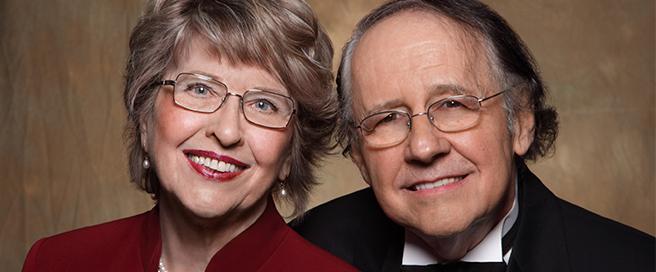Ron and Ann Surace at the Illinois Music Teachers 2015 State Conference

November 3rd, 2015
November 1, 2015 - updated May 11, 2016
This past November, Ron and Ann Surace performed their original 13 movement "Pinocchio Suite" at the Illinois Music Teacher 2015 State Conference at the Moody Bible Institute in Chicago. Entitled "Bringing Pinocchio to life, from story to song - to keyboard" (using program music to inspire student creativity), the performance will surely inspire.We had a few moments to ask a few more questions about this original work and how the project came about.
RON: After setting the Lewis Carroll Alice’s Adventures in Wonderland as a chamber opera, I reviewed other texts for possible use…I was attracted to Pinocchio because at one level, [it’s] a brilliant and entertaining children’s book, but at a deeper level it is a morality play about human nature and the inclination to ignore wise council and make bad choices. So I turned my musical theater interest to the Pinocchio story in 2008 as a possible chamber opera setting using a small orchestra and a few singers performing multiple roles. I finally settled on two acoustic pianos as the orchestra. In the past, I’ve either written strictly jazz style works or—on the other hand—classical pieces without reference to jazz at all. However, with this new work, I felt that my firsthand experience with American jazz and Classical Western music should unabashedly merge and become one.
How did you use music to bring this story to life?
RON: Actually the original “Pinocchio” text inspired the creation of the music. I found that “words-to-music” became more or less the act of writing down the music suggested by the text. Songs seemed to leap off the page along with the text.
What’s it like being married to a fellow musician and teacher?
ANN: After 51 years of this marriage I can’t imagine life with a non-musician. Only a professional performing musician could possibly understand our wildly unpredictable schedules where rehearsals, performances, and students take precedence over every aspect of life—mealtimes, bedtimes, vacations, even our own children’s school programs. Only a fellow music educator could truly empathize with the exhaustion, disappointments, and exhilaration experienced after any typical day of private piano teaching. Although we are both pianists we have never been competitive with each other. We are so different. Ron’s ideal is Horowitz; mine is Rubenstein. Ron’s special gifts extend to jazz and composition; mine have taken flights into church and chamber music as well as work as vocal performance. Best of all, our work takes place afternoons and evenings, so we can watch old movies at midnight and sleep late the next morning!
Ann, you have a background in a variety of instruments including violin, clarinet, organ and voice. How does that influence how you teach piano?
ANN: I encourage my piano students to develop their aural skills and sense of musical line by singing. Although many of them are afraid to sing, they are all willing to hum along with me and to sing the scale and intervals using numbers. The beginners enjoy helping me to invent words for their little pieces. Vocal diction and breathing are easily related to piano articulation and phrasing. Operatic characters and scenes can also be described to contrast “A” and “B” sections in Mozart sonatas. I love teaching articulation to pianists who play wind instruments. They understand breathing, tonguing and slurring. Sometimes I write “T”(for tongue) above a slur beginning, and they immediately “get it.” Some of my piano students play stringed instruments. I can remind them to “change bow” at a new phrase or to connect a slur with one bow. I often teach children the basic conductor’s beat to give a sense of metric emphasis or too better understand thinking “in three” or “in one.” We often relate piano music to orchestral instruments. I love teaching a child who plays another instrument.
Look for more of our interview with Music Institute of Chicago faculty pianists Ron and Ann Surace soon.
